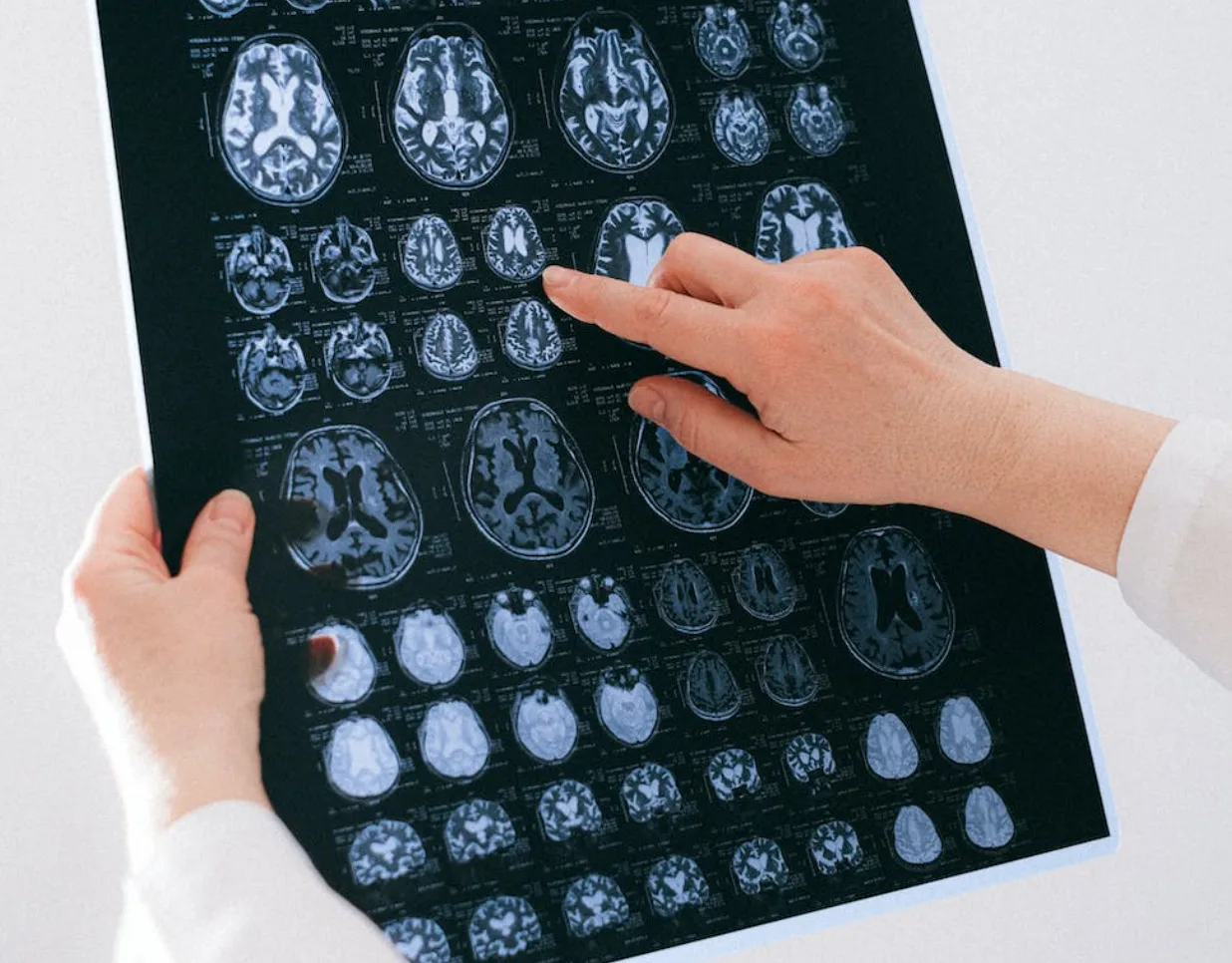
Neurotherapy for Addiction Treatment
Addiction treatments are rapidly evolving, and exploring innovative approaches allows rehab experts to use cutting-edge techniques to support their patients during recovery. Neurotherapy for addiction is an exciting development that can help people with addictions retrain their brains to develop healthier habits and thought patterns. The therapy enables clinicians to respond to each patient’s unique brainwaves, making it a potentially beneficial addition to a holistic treatment plan.
So, what is neurotherapy, and how can it help with addiction recovery? This guide explores the benefits of neurotherapy as a treatment for addiction.

What Is Neurotherapy or Neurofeedback?
Neurotherapy treatment, also known as neurofeedback therapy, is a procedure that helps people gain control over their brain activities. Clinicians use neurotherapy to treat multiple conditions, including:
- Anxiety
- Depression
- Attention deficit hyperactivity disorder (ADHD)
- Epilepsy
- Chronic pain
- Schizophrenia
- Insomnia
- Addiction
During a neurotherapy session, a qualified therapist attaches electrodes to the patient’s scalp to monitor their brain signals. The electrodes attach to the head using stickers or a specialized headset, making the treatment non-invasive and painless. The electrodes pass information to a computer, allowing the therapist to see how the brain reacts to stimuli in real time.
Practitioners use this information to help patients understand how their brains process certain triggers. They then help the person recognize these reactions as they happen and gain control over their brainwaves. For example, therapists can deliver targeted instruction to teach a person how to produce alpha brainwaves to induce calm or beta waves to improve focus.
Many neurotherapy treatment models use a straightforward computer game format to encourage greater control over brain wave activity. The therapist provides a stimulus, such as a sound or picture, and asks the patient to manifest certain brainwaves. When successful, the person receives a “reward” by achieving a goal in the on-screen game. These rewards can help reinforce positive thought patterns, making it easier to control brain processes that are usually subconscious.
Most people need multiple neurofeedback sessions to achieve symptom relief. For instance, a 2020 study exploring the antidepressant effect of neurotherapy provided participants with five treatment sessions, resulting in a significant improvement in their symptoms. The number of sessions required depends on several factors, including the reason for treatment and how responsive a person is to neurofeedback techniques.
Neurotherapy can be used alongside traditional addiction and mental health therapies as part of a holistic substance abuse disorder program. Beachway offers neurotherapy for drug and alcohol addiction to help patients break free from unhealthy thought and behavioral patterns and achieve lasting recovery.
Neurotherapy as Treatment for Addiction
Addiction is a disease, and misusing drugs or alcohol significantly impacts the brain. When a person abuses substances, they experience a rush of dopamine. This dopamine hit stimulates the brain’s reward center, encouraging repeated drug use. Therefore, it makes sense that a treatment focused on brain activity can help treat a problem that starts in the brain.
Neurotherapy for addiction works by increasing control over certain brain functions central to addiction. Over time, the treatment can help change how the brain responds to rewards, enhance emotional regulation, and improve self-control. Furthermore, the ability to view the brain’s activities in real time allows therapists to deliver personalized treatments and assess each patient’s reactions more accurately than many other types of therapy.
Another factor to consider is the connection between mental health problems and substance misuse. Having a co-occuring substance abuse and mental health disorder is often called a dual diagnosis. Often, people with anxiety, depression, and other mental health disorders use drugs or alcohol to cope with distressing symptoms. In turn, substance abuse can exacerbate mental health symptoms, leading to a vicious cycle of increasing drug use and worsening symptoms. Using neurotherapy to treat both disorders can help address the root cause of addictions while helping patients achieve freedom from substances.
Is Neurofeedback Effective for Addiction?
Neurofeedback therapy is still a relatively new treatment model for addiction. Consequently, there isn’t as much scientific evidence for its use in substance abuse programs as more established treatment modalities.
However, much of the existing research suggests that neurotherapy is effective for substance misuse disorders. For example, a 2013 study examining neurotherapy for addiction found that participants experienced decreased opiate cravings and better mental health after neurofeedback treatment. Research also shows that neurotherapy reduces the risk of relapse in people undergoing substance abuse treatment.
While more research is needed, neurotherapy also appears to have significant potential as a treatment for mental health disorders. A 2017 review of the literature on neurofeedback and mental health determined that the treatment could significantly decrease symptoms of post-traumatic stress disorder (PTSD). The same review also found that neurotherapy reduced depression symptoms in patients with major depressive disorder (MDD). Patients with generalized anxiety disorder experienced similar symptom relief alongside improvements in day-to-day functioning.
Addiction recovery is deeply personal, and what works for one person may not work for another. Trying neurotherapy as part of a recovery program can help people decide whether it works for them.
Neurotherapy Success Rate
Determining the success rate of neurotherapy for addiction is challenging because most studies are small-scale and short-term. However, many people can use neurofeedback successfully. Generally, around 70% of people can learn to control their brain activity with regular neurotherapy treatment sessions.

Benefits of Neurotherapy Treatment
Neurotherapy offers several unique benefits for people with addictions. It may be a good option for people who want to avoid taking medications or feel worried about the side effects of other treatment models.
However, it’s worth noting that neurotherapy can occasionally cause side effects, and the risk is higher if an untrained therapist delivers the treatment. Most people reporting side effects of neurotherapy experience relatively mild symptoms, such as a dry mouth or sleepiness.
Another advantage of neurotherapy for addiction is its potential to treat mental health disorders. Managing stress, anxiety, and other mental health symptoms may increase the chances of successful addiction treatment for people with dual diagnosis.
Holistic Therapy Approach
Neurofeedback is often a helpful addition to a holistic addiction treatment plan because it addresses the emotional and mental causes of substance misuse by retraining the brain. While pharmacologic treatments for addiction can help manage symptoms, they don’t address the root cause.
However, that doesn’t mean that medications don’t have their place — clinicians often recommend combining neurotherapy with more traditional addiction treatments to manage multiple aspects of substance use and withdrawal. Therapists can adapt neurotherapy sessions for patients taking medications to manage physical or mental health concerns.
Personalized Treatment
By its very nature, neurofeedback offers a personalized approach to addiction recovery. Neurofeedback therapists use unique brainwave data to generate treatment plans, allowing them to tailor their support to each person’s individual responses and needs. For example, clinicians can review person-specific reactions to certain subjects or stimuli and use this information to plan targeted neurofeedback sessions.
Factors such as moods and potential relapse triggers are highly personal. Therefore, customized, targeted interventions that recognize a person’s unique neurological characteristics can help increase the chances of lifelong recovery.
Utilize Neurotherapy for Addiction Treatment at Beachway
The clinical team at Beachway uses personalized, targeted neurotherapy treatment to support addiction and mental health recovery. Patients can receive neurotherapy for addiction as inpatients or outpatients alongside other therapeutic options. For example, many people use neurofeedback with other psychological treatments, such as cognitive behavioral therapy (CBT). Cognitive behavioral therapy is a type of counseling that encourages patients to develop positive thought and behavioral patterns.
Neurotherapy may also be helpful for people with a dual diagnosis. Beachway’s therapists use neurofeedback to treat both mental health disorders and substance abuse disorders to help patients understand and address the causes of their addictions. The clinic also offers rehab support to manage withdrawal symptoms and help people withdraw from drugs and alcohol safely.
No single treatment can cure substance addiction for every person, and neurotherapy is no exception. Beachway emphasizes treating the whole person with a holistic program designed to meet each individual’s physical, mental, and emotional health needs. Programs include a range of complementary treatments, including art therapy, equine therapy, and yoga. This holistic approach promotes healthy habits and a positive self-image for long-term healing. After treatment completion, the team provides regular aftercare to reduce the risk of relapse and provide ongoing support.
Starting an addiction treatment program can feel daunting, but recovery is achievable with professional support.



